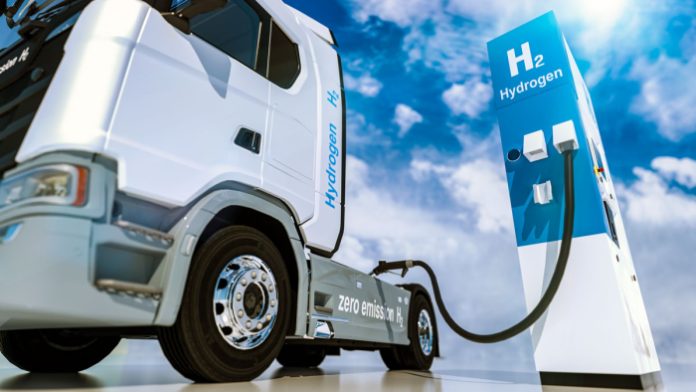That new mobility forms are here to stay is no longer a matter of surprise. Indeed, experts highlight green hydrogen and electric batteries as the future of global transport, but even so, there are many variables that revolutionize the discourse and generate controversy about the electric mobility of the future.
While it is true that electric batteries have overtaken hydrogen in terms of light vehicles, mainly due to their high energy efficiency and reduced cost compared to the first ones, the discourse changes when talking about heavy-duty transport due to the low refueling times of green hydrogen.
The greatest advantage: charging times
Charging an electric truck takes about 8 hours during which the vehicle must be parked, while the average charging time for hydrogen vehicles is only 5 minutes.
This poses a major dilemma for some heavy-duty transport companies and leaves a huge scope for electric batteries to improve. However, the Megawatt research group offers encouraging results with its “Megawatt Charging System” (MCS) charging prototype for heavy-duty trucks, which charges electric trucks in just half an hour.
The heart of the matter: energy efficiency
When it comes to energy efficiency, the figures are undoubtedly in favour of electric battery vehicles, as their efficiency from the time they collect energy from renewable sources until the car is running is at least 70%, with only 30% losses.
This is not the case for hydrogen trucks, as the energy optimisation in this type of heavy-duty vehicle is only 30%, with the vast majority being lost in the energy conversion process.
Green hydrogen is produced by hydrolysis (the process of generating hydrogen and oxygen from the water through electricity). And, as is well known, the more energy transformations there are, the more losses occur; so from an energy point of view it is more efficient to transport and use electricity directly than to transform it into hydrogen.
This disadvantageous situation calls into question the viability of hydrogen vehicles, as by losing 70% of the energy in the transformation process, they impact negatively on the European goal of increasing energy efficiency.
Another handicap: high hydrogen prices
Another drawback of hydrogen vehicles is their price. While electricity has a price that is regulated by set tariffs, hydrogen is even more expensive than petrol because it requires scarce and expensive materials for the reaction of the energy process (such as catalysts), which makes the cost of refuelling hydrogen high.
In addition, a hydrogen refuelling station costs up to ten times more than a high-power DC charging station for electric cars.
The environmental problem of hydrogen
Hydrogen (H), normally found in gaseous form (H2), is a very abundant element on our planet and, if it is green hydrogen, meaning that it is extracted from renewable energies, it becomes a net source of energy.
However, a study by the PIK, the Potsdam Institute for Climate Change Research, highlights the climate risks that hydrogen can pose. Even Volkswagen CEO Herbert Diess says a resounding NO to hydrogen and calls for science to be listened to in a recent tweet in mid-May.
The leader of the research calls for efforts to be focused on those sectors where hydrogen is a necessary option, particularly in heavy-duty vehicles and sectors where electricity is currently not a viable answer for logistical, economic, and/or technological reasons, such as aircraft, ships and trains, and even for steel production.
Main advantages and disadvantages
In short, green hydrogen is zero emissions, as it only emits water vapour, is available in infinite quantities through electrolysis or hydrolysis, allows long ranges (over 600 km) and fast refuelling (between 3 and 5 minutes), and would not emit any engine noise, like current electric cars. However, all that glitters is not gold, as it has significant disadvantages:
- Lower efficiency due to high energy losses
- Highly flammable
- High costs and poor infrastructure, as it is very expensive to purchase and maintain
- Impossible to use directly as an energy source, as it must be obtained from natural resources such as water with high energy consumption
Thus, it seems that electric batteries will prevail over hydrogen, although heavy-duty transport still has a long way to go. However, the first trucks with lighter electric batteries and ranges of up to 1000 km are already in sight, such as the new truck from the American company Tesla, which will be launched in 2022 and will set a precedent for the range of electric trucks.
All in all, it is clear that there are a number of key factors that will determine the direction of the electric and sustainable mobility sector over the next few years.








